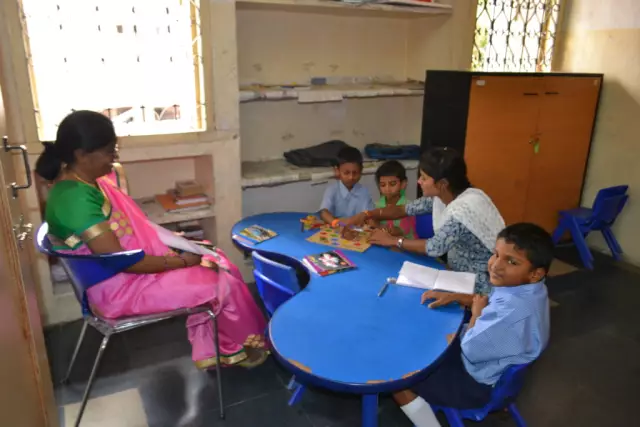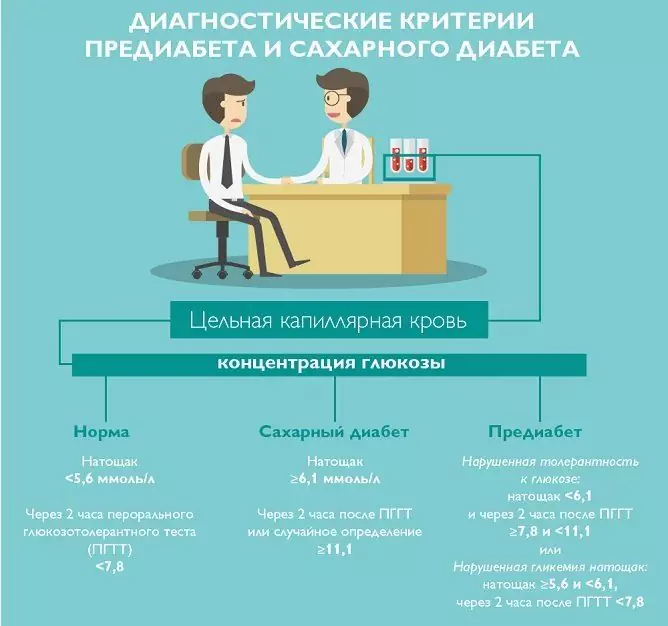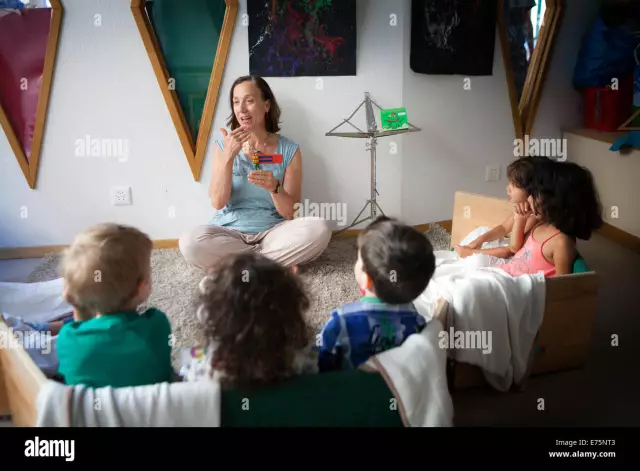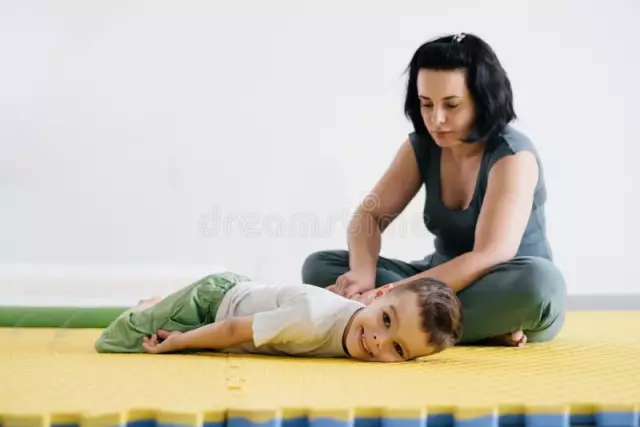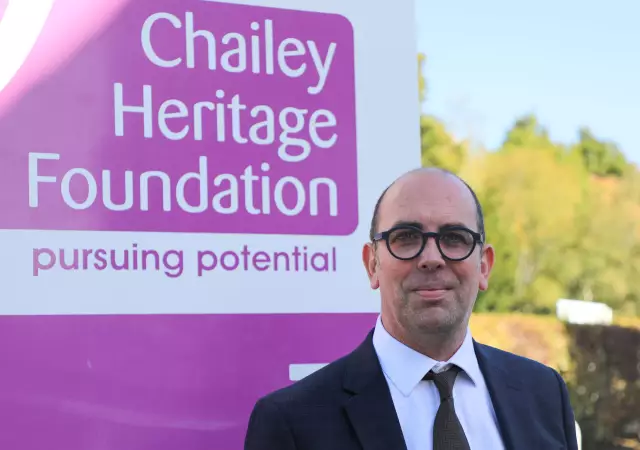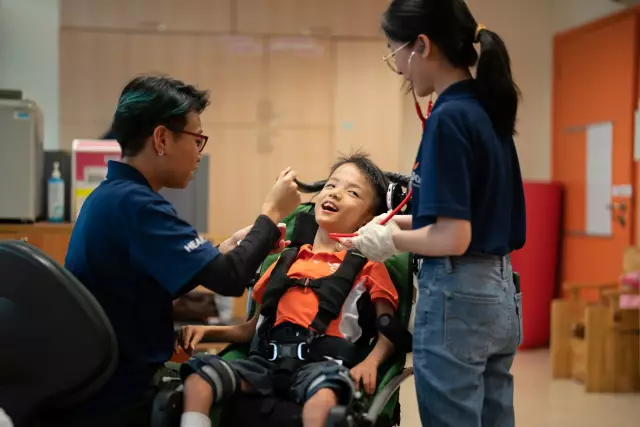- Author Rachel Wainwright wainwright@abchealthonline.com.
- Public 2023-12-15 07:39.
- Last modified 2025-11-02 20:14.
Hearing impaired children - education and rehabilitation
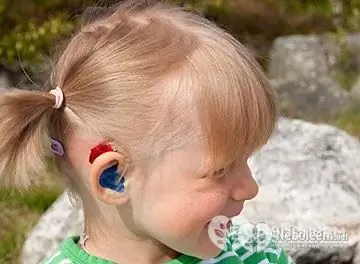
Hearing impairment is the loss of the human body's ability to detect all frequencies or distinguish low amplitude sounds. Distinguish between congenital or acquired, complete (deafness) or partial (deafness) hearing impairment.
Congenital or acquired deafness in children leads to a decrease in intelligence and mental retardation, sharply reduces the child's ability to perceive his own voice and the speech of people around him, so it is rather difficult for children with hearing impairment to learn to talk.
Hearing impairment is the most common condition in infants. According to statistics, 1-2 out of a thousand babies are born with deafness or severe hearing impairment.
Hearing impairment in children can be caused by:
- Genetically transmitted congenital disorders;
- Underweight at birth (less than 1.5 kg);
- Diseases of the inner ear and auditory nerve;
- Deviations that occur before, during or after childbirth;
- Middle ear inflammation and some infectious diseases (meningitis, flu);
- Injury or prolonged exposure to high noise and vibration;
- Congenital anatomical defects of the head and neck.
Leading doctors of the world believe that pathologies of the auditory system significantly affect not only the development of speech, but also the anatomical, physiological and psychological development of the child.
Since deafness is not a visible disorder, it can only be diagnosed using universal neonatal screening, the latest technology widely used in the West. Without screening, it is possible to recognize how poorly a child's hearing is only when he is 2-3 years old.
At the same time, it is known that the most important for language and speech development is the first year of a child's life. If during this period his hearing is corrected with the help of a hearing aid, then there is a high probability that the child's speech apparatus will develop normally. Timely correction increases the chances of children with hearing impairments for normal physical and psychological development.
Characteristics of children with hearing impairment
Partial or complete deafness deprives the child of an important source of information and thereby limits the process of his intellectual development. Hearing impairment directly affects the development of the child's speech apparatus and indirectly on the formation of thinking and memory. Since the behavioral and personal characteristics of children with hearing impairment are not biologically determined, they can be corrected to the greatest extent when the appropriate conditions are created.
The leading role in the knowledge of the surrounding world in children with complete or partial deafness is played by sight, as well as motor, tactile and tactile-vibration sensations.
A number of features differ in the memory of partially or completely deaf children, since the rate of speech development is slowed down in them, and accordingly their verbal memory slows down. Slow speech formation, in turn, affects the abstract thinking of children with hearing impairments.
According to statistics, hearing loss in children is accompanied by:

- In 80% of cases, delayed development of motor skills;
- In 62% of cases, disharmonious physical development;
- In 43.6% - defects of the musculoskeletal system;
- In 70% of cases, concomitant diseases are observed.
The main characteristics of preschool children with hearing impairment are:
- The lag in their psychophysical development is on average 1-3 years from their hearing peers;
- Insufficient physical activity;
- Impaired coordination of movements and a low level of orientation in space;
- Slower speed of individual movements fulfillment and the pace of motor activity in general;
- Difficulty switching attention;
- The entire process of memorization is based on visual images;
- Sensitivity to changing climatic conditions.
A child with hearing impairment slows down the process of assimilating information and there is a difficulty in communicating with people around him, which cannot but affect the formation of his personality.
Difficulty in establishing contacts and the originality of relationships with ordinary children can lead to the formation of such negative traits and characteristics of children with hearing impairment, such as aggressiveness and withdrawal. However, with the timely provision of corrective assistance, any deviations in personality development can be overcome.
Rehabilitation of children with hearing impairment
Rehabilitation measures for children with hearing impairments should be started as soon as the child turns 2-3 years old. The rehabilitation of hearing impaired children is carried out in specialized kindergartens and schools, where the consequences of the defect are overcome with the help of speech lessons using hearing aids.
Early detection of hearing impairment in a child and the use of rehabilitation measures is the key to his successful recovery. At home, the rehabilitation of children with hearing impairment occurs through natural verbal communication with parents and people with normal hearing and speech. This component of the recovery process requires a lot of work and patience from the parents of a hearing impaired child, since the words must be pronounced clearly and slowly, the movements of the lips and tongue must be clearly visible to the child.
Education for children with hearing impairment
Hearing impaired and completely deaf children lag behind their hearing peers in development by several years. To overcome developmental disorders, a holistic and social in nature impact on the personality is necessary, therefore, teaching children with hearing impairments should be carried out in specially organized educational institutions.
In such institutions, special conditions have been created that allow children to overcome the consequences of a defect, correct the disturbed course of personality formation, correct or recreate the most important mental properties. Special education for children with hearing impairments allows them to form speech, conceptual thinking and verbal memory.
In schools for hearing impaired children, they teach lip reading, the pedagogical process is aimed at filling development gaps, and the applied language teaching system allows you to master different types and forms of speech activity.
Visual-effective means and techniques (pantomime, dramatization and staging) play a special role in the process of education of children with hearing impairment, because they help to form ideas and concepts, first on a visual-figurative, and then on an abstract level of generalizations.
Hearing impairment in children is the most common defect. Parents should pay attention to their behavior from a very young age: if a child at the age of 6 months does not react to auditory stimuli at all or does not react at all, and does not pronounce vowels closer to a year, the probability of hearing impairment is high.
Early diagnosis and detection of a defect allows it to be corrected in a timely manner using a hearing aid, which increases the chances of children with partial hearing loss to lead a normal life.
YouTube video related to the article:
Found a mistake in the text? Select it and press Ctrl + Enter.

